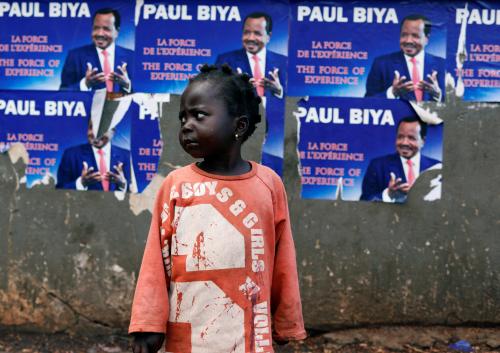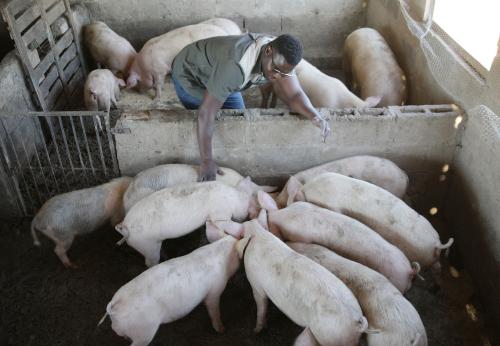Many factors influence how individuals vote, including how they perceive others may vote. In this way, many experts believe individuals can be swayed by polls showing heightened support for candidates or other political beliefs. Notably, though, this potential behavior raises the possibility of incentivizing voters to vote for a candidate other than one’s preferred candidate for strategic reasons. For this reason, 16 countries prohibit the publishing of poll results in the weeks leading up to an election, and a number of others ban exit polls.
With this phenomenon in mind, a new paper by University of Oxford Senior Research Fellow Kate Orkin investigates whether voters in a low-income black African area in Johannesburg were influenced by two polls conducted in advance of South Africa’s municipal election on August 3, 2016. The paper summarizes an experiment in which respondents were shown the results of one of two polls in the weeks leading up to the election: The first treatment arm viewed a June 16 poll that showed that the incumbent African National Congress (ANC) candidate was leading by 2 percentage points, while the second treatment arm viewed a June 30 poll that showed that the Democratic Alliance (DA) candidate was leading by 3 percentage points. Figure 1 shows the graphics that respondents were shown depicting the results of the two polls. The study also included a control group that was shown neither poll result.
Figure 1. Poll results shown in treatment arms 1 and 2
Source: Orkin (2020), “Everybody loves a winner: A field experiment providing information on polls in South Africa.”
Notably, the author argues that there is a large impact of polls on voting outcomes, but only for those who hear that the party with which they most closely align is slightly ahead (Figure 2). Specifically, this group of voters saw a 10 percentage point increase in the likelihood of voting and a 12 percentage point increase in the likelihood of voting for their party. Interestingly, the paper does not find an impact on voter outcomes for those that hear that their party is slightly behind in the polls: They were not more likely to vote and were not more apt to vote for their party when they did vote. In other words, the author finds that, when a voter sees that their party is leading in the polls, the voter is more likely to approve of the party leader and the party itself.
Figure 2. Impacts of the intervention
Source: Orkin (2020), “Everybody loves a winner: A field experiment providing information on polls in South Africa.”
While the results suggest that polls may influence election outcomes, the author cautions extrapolating this conclusion far beyond demographically similar voters to the sample in the analysis. Moreover, polls in countries in which polling results are common and regularly reported may be less influential. Nevertheless, policymakers, voters, and politicians alike may take something away from the author’s finding that polls may influence election outcomes.
The Brookings Institution is committed to quality, independence, and impact.
We are supported by a diverse array of funders. In line with our values and policies, each Brookings publication represents the sole views of its author(s).










Commentary
Figures of the week: Research in South Africa into whether polls influence votes
November 18, 2020